Galvin, Brian  ORCID: https://orcid.org/0000-0002-5639-1819
(2025)
National Drugs Forum 2024.
Drugnet Ireland,
Issue 90, Winter 2025,
pp. 34-35.
ORCID: https://orcid.org/0000-0002-5639-1819
(2025)
National Drugs Forum 2024.
Drugnet Ireland,
Issue 90, Winter 2025,
pp. 34-35.
| Preview | Title | Contact |
|---|---|---|
|
PDF (Drugnet Ireland issue 90)
1MB |
Emerging drug trends: monitoring, communicating, and responding
The 2024 National Drugs Forum was held in Croke Park in Dublin on 14 November. The theme of the forum was early warning on new drugs and emerging trends. The event provided an opportunity to learn about recently developed monitoring tools in Ireland and to get a sense of the types of information that can contribute to knowledge on emerging trends and support preparedness to deal with threats that might be unfamiliar. Previously experimental techniques, such as wastewater analysis, drug checking and testing, analysis of syringe residues, and online surveys are now part of Ireland’s early warning system.
Marketplace presentations
The keynote talks by Professor Eamon Keenan, Health Service Executive (HSE); Rachel Christie, European Union Drugs Agency (EUDA); and Vicki Craig, Rapid Action Drug Alerts and Response (RADAR) (Scotland) were followed by two separate marketplace presentation sessions involving several simultaneous presentations. Each presenter used a poster to illustrate an aspect of the part of the monitoring system in which they are involved.
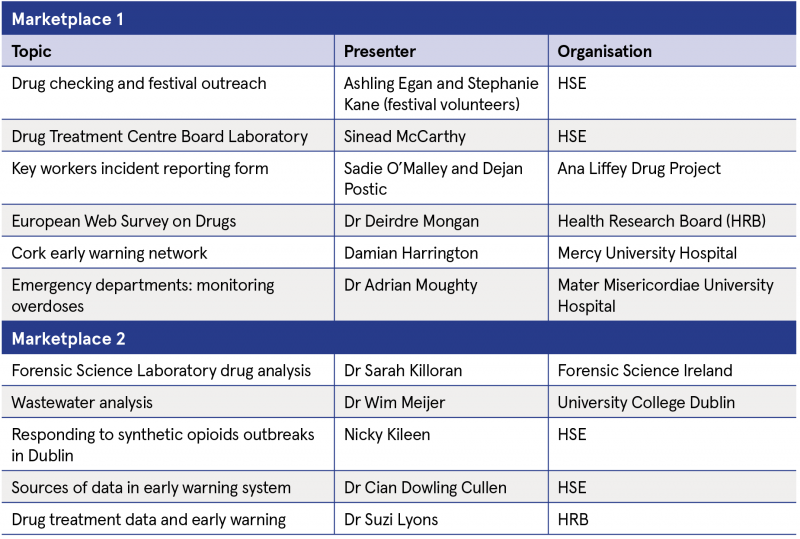
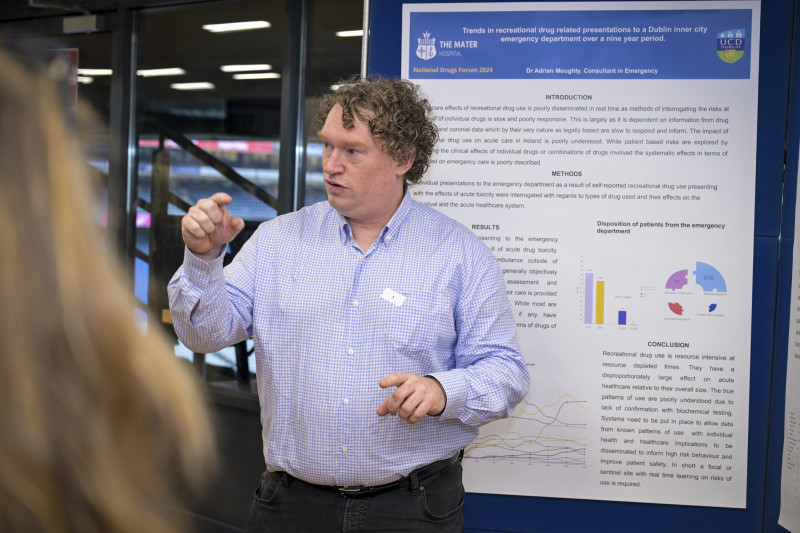
Dr Adrian Moughty, Emergency Department, Mater Misericordiae University Hospital speaking at the National Drugs Forum
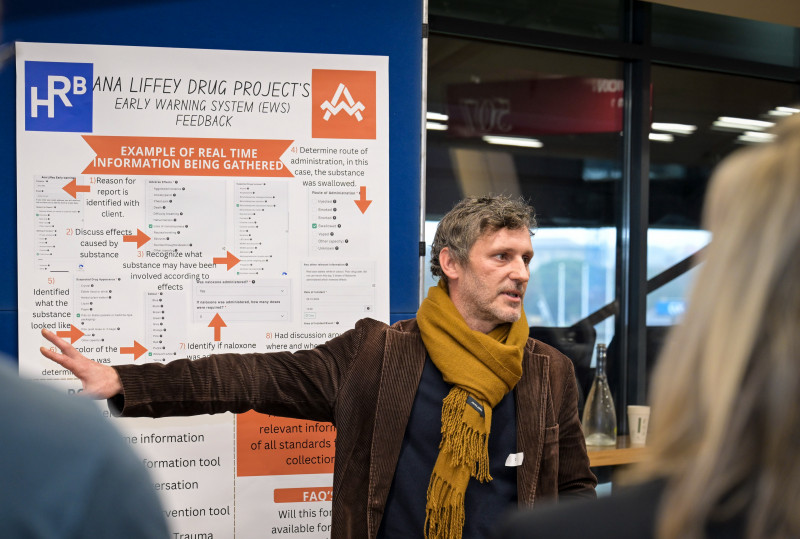
Dejan Postic, Project Worker, Ana Liffey Drug Project, speaking on the key worker incident forms project at the National Drugs Forum.
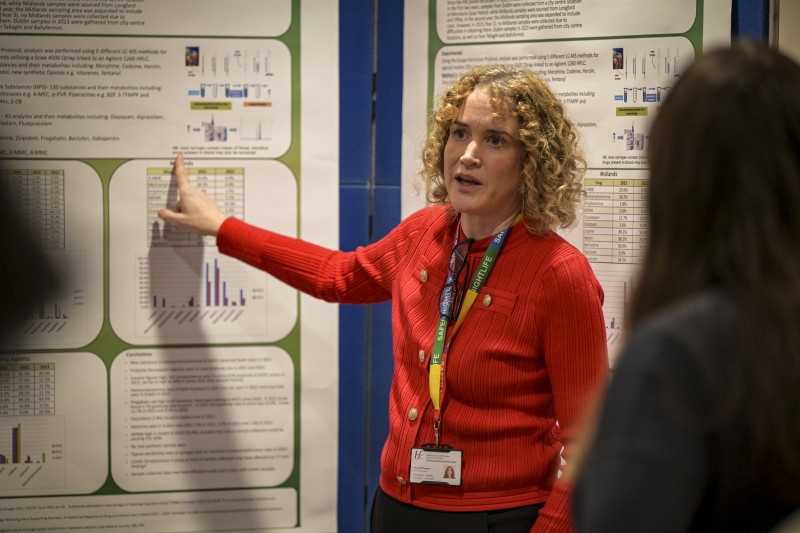
Dr Sinead McNamara, National Drug Treatment Centre Board laboratory at the National Drugs Forum.
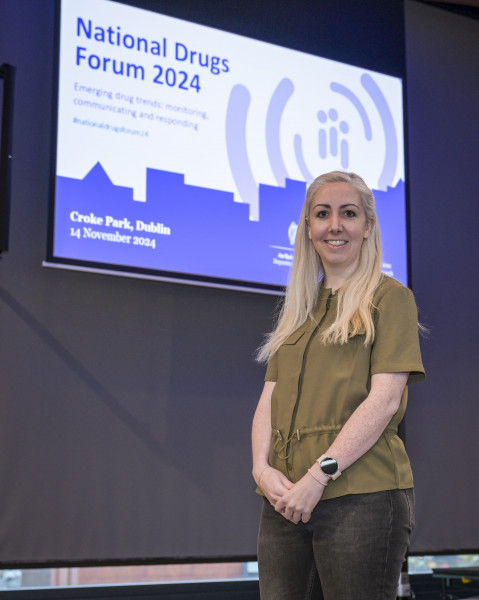
Vicki Craig, from RADAR in Scotland, who gave a keynote talk at the National Drugs Forum.
There are technical challenges to developing early warning tools, such as the availability of standards to confirm the chemical compositions of substances. Time pressure on those working as first responders, key workers in low threshold services, or those working in emergency departments means that the opportunity to collect data and gain valuable insights into new drug phenomena is limited. Awareness of the needs of these staff will help to harness the rich knowledge they hold and their skill in extracting information in difficult circumstances. These areas need work, but the main task facing our public health services in relation to drugs are administrative and relate to communication, diffusion of knowledge and coordination of services. The challenges are in health intelligence; how do we use the knowledge that is available to us to protect lives? The presentations and discussion at the National Drugs Forum represent important contributions to growing knowledge on this topic and will help us to answer this question.
B Substances > Substances in general
J Health care, prevention, harm reduction and treatment > Identification and screening > Identification and screening for substance use
J Health care, prevention, harm reduction and treatment > Health related issues > Health information and education
N Communication, information and education > Information use and impact
N Communication, information and education > Information transfer / dissemination > Information transfer from research evidence to practice
VA Geographic area > Europe > Ireland
Repository Staff Only: item control page